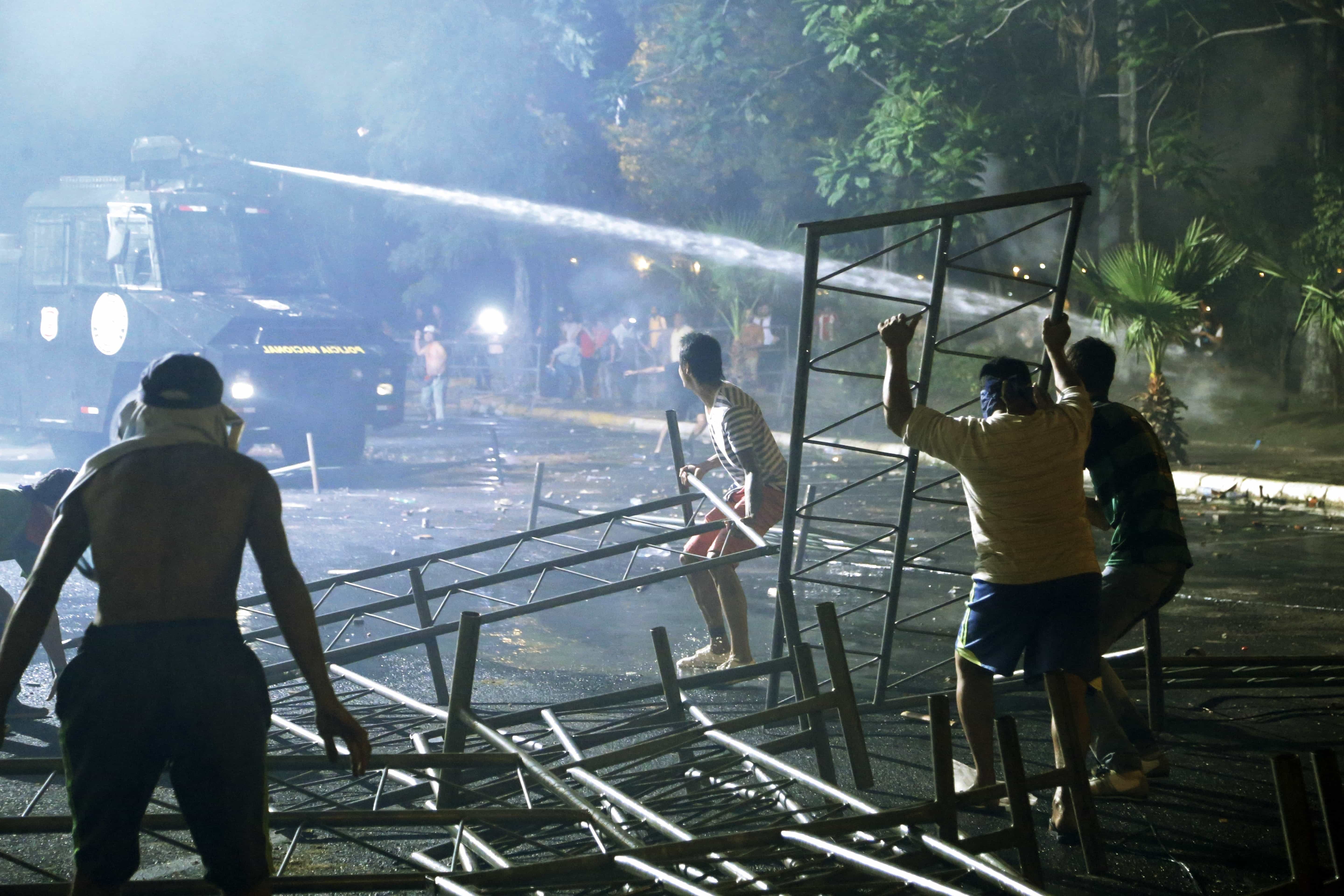A roundup of key free expression news in the Americas, based on IFEX member reports.
The country sadly topping all of the headlines this month was Venezuela. With an average of almost one social protest in the streets per day, Maduro’s government experienced a series of unfortunate events, notably including the dissolution of the National Assembly for three days.
Violent attacks on citizens and the political opposition were not lacking in each of these protests. Special attention was directed towards journalists, who were severely attacked as they tried to cover the events. Such was the case for Elyangélica González, a correspondent for Caracas de Caracol Radio de Colombia (Colombia’s Caracas de Caracol Radio station). Additionally, the government sought to misinform the people as to what was happening, using its official state media outlet.
Members of IFEX like Espacio Público and IPYS Venezuela systematically denounced these incidents and highlighted the seriousness of the Caribbean country’s current state of affairs, including denouncing the government of Nicolás Maduro for inciting hatred.
No progress
The situation in Mexico has not improved. Between March and April, at least four journalists were killed and there were two attempted murders. ARTICLE 19’s annual report for Mexico and Central America painted a grim picture in the country: in 2016, the organization reported 426 attacks against the press, making it the most violent year ever for the Mexican press.
Mexico ranks 147th among 180 countries in the 2017 World Press Freedom Index, published by Reporters Without Borders last week.
Meanwhile, along the U.S. border, Mexican journalist Martín Méndez Pineda has been detained for over two months, after attempting to cross the border in search of asylum following death threats.
Elections were held in Ecuador, and although the pro-government political party won, President Rafael Correa did not pass up the opportunity to harass, attack, and incite violence against the media. Days after the victory, Correa made accusations against pollster CEDATOS, television channel Ecuavisa, and the Participación Ciudadana organization, claiming that they were rigging the elections in favor of Guillermo Lasso. He stated that the three entities will have to “respond to the law”, and that they will have “civil, administrative, and other responsibilities.” Also, activists who came out to protest this month were victims of harassment and intimidation. Moreover, at the end of the month, Correa sanctioned seven media outlets that, according to a member of IFEX Fundamedios “did not join the lynching campaign against the opposition candidate that was carried out by the media at the hands of the Government during the elections”.
Deaths, attacks, and protection of data
Attacks and problems have also persisted in other areas of the region. In Honduras, attacks against journalists and activists are on the daily menu. A few days ago, a “mob” consisting of government employees and others used stones, sticks, and knives to attack a group of women holding a peaceful demonstration for the decriminalization of abortion, according to C-Libre.
Special mention should be made regarding the tragic murder of activist Sherlyn Montoya on 4 April. Montoya was a known activist for transgender and LGBTQ rights. She was found dead on the outskirts of Tegucigalpa and her body showed signs of torture. The activist was a member of the Arcoiris Honduras group.
Paraguay has also had its share of social demonstrations due to a bill that sought to amend the constitution. During the protests, several journalists were shot with rubber bullets and beaten by the police.
In Colombia, journalists cannot freely practice their profession in FARC transition zones.
Another central aspect this month dealt with access to information and protection of personal data. While Canada passed the Journalistic Source Protection Act, Canadian Journalists for Free Expression (CJFE) signaled that the country’s access to information system is “badly broken”.
Venezuela and Ecuador also restricted and in some cases blocked Internet access last month, in order to stop people from accessing multiple, diverse sources of information. The facts highlight the fragility of free Internet access in Latin America and, as such, the fragility of democracy in the region.
Meanwhile, a report by the Electronic Frontier Foundation revealed that Internet companies in Paraguay defend data, but keep their customers in the dark. And in Chile, Derechos Digitales (Digital Rights) reported that the country’s legislation provides a weak framework for effective protection of personal data.
